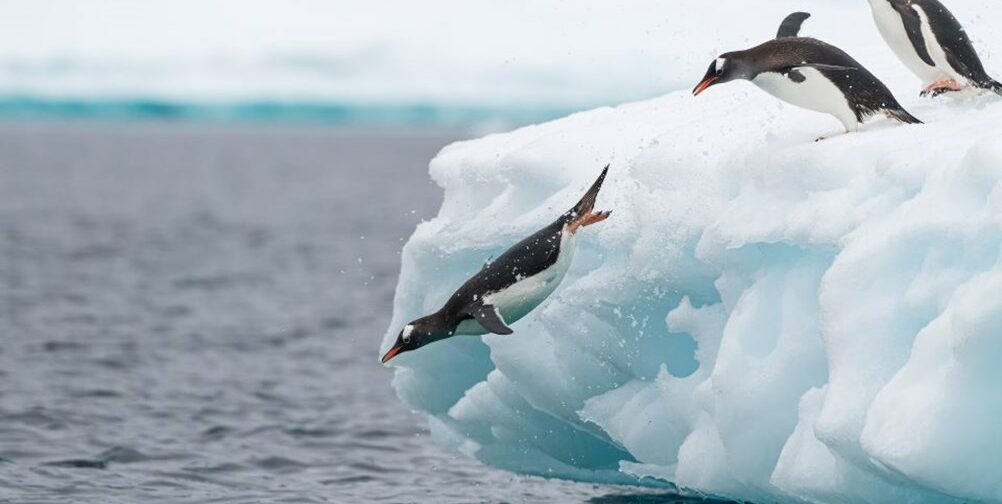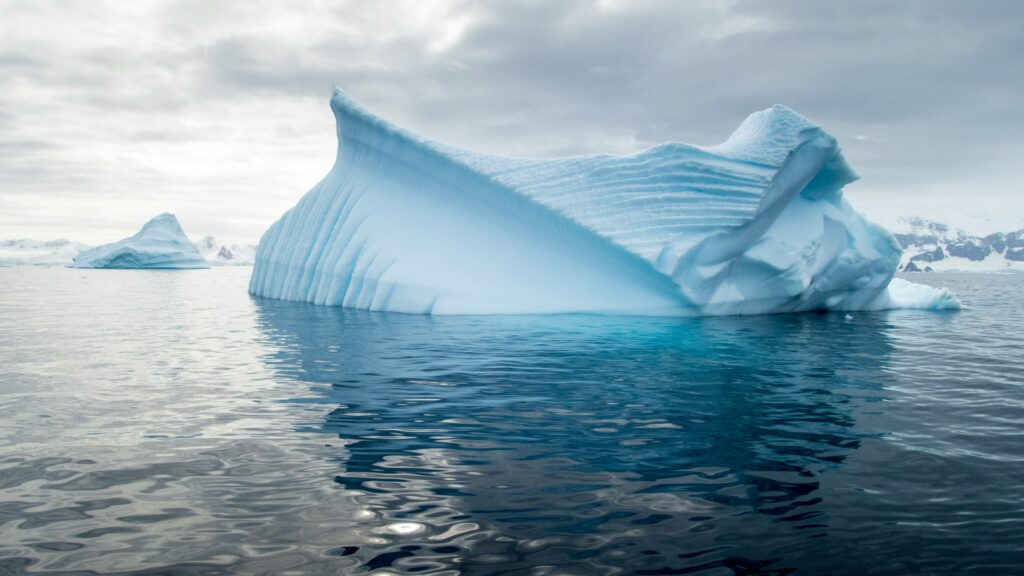As climate alarmists “chase the dragon” of the high they get from panicking the public, the rhetoric just keeps getting more lurid. Scientists no longer say or warn; they are “stunned by climate denialism”. And in a Daily Telegraph story urging us to celebrate Frank Hurley, the daredevil who photographed Earnest Shackleton’s nearly disastrous 1914 Antarctic expedition, we hear that someone else plans to “chronicle a territory increasingly ravaged by climate change.” Ravaged! Genghis Climate strikes again! Which makes it unsporting to mention that Antarctica is actually cooling even further, or that when climate experts went on a PR expedition in 2014 to retrace Antarctica explorations to show how it’s so much warmer now it ended up with the nitwits encased in ice and begging for rescue. And it would be unsporting of us if we were to wish the same fate on this latest stunt, so we won’t. But we don’t promise not to laugh if it happens.
We also don’t promise not to mention again how annoying it is when activists and researchers launch publicity voyages to the Arctic or Antarctic to promote climate alarm then need to be rescued after getting stuck in the ice. Hence our Public Service Announcement on far northern temperatures in Canada. Another annoying feature of climate debate is the way in which alarmists no longer think it is incumbent on them to bring forward evidence of global heating, climate breakdown, the planet roasting or whatever it’s called this week. Thus the Wired piece we cited last week also contained rhetorical dragon-chasing: “Because land is heating so quickly, increasingly frequent and intense heat waves are brutalizing people living in different parts of the world.” In case you didn’t notice. Not just warming. Heating. Not just threatening. Brutalizing. And we aren’t just going to die, we already did. “Last summer in western Canada and the US Pacific Northwest, absurd temperatures of over 120 degrees Fahrenheit killed hundreds of people.”
On that piece raved, with rising sea levels, the Thwaites glacier getting it and so forth. “Extreme heat also leads to crop failures and water shortages, and it supercharges wildfires: In California alone last year, blazes chewed through 4,000 square miles of land.” Plus floods, hurricanes and even Biblical plagues: “‘We also saw the worst locust plagues in decades in East Africa. In March there were major floods in eastern Australia, and the worst sandstorm in Beijing in a decade,’ said Russ Vose, chief of the analysis and synthesis branch of NOAA’s National Centers for Environmental Information.” None of which ever happened before except when it did. It just wasn’t described this way back then.
To some extent it’s the modern problem of clickbait that afflicts all topics. And to some extent it’s that modern journalists are crusaders for their truth not reporters of the boring old real one. But there’s also considerable ideological pressure to amp up the rhetoric and facts be hanged, in order to get people to deal with a crisis that they won’t believe is happening if we just report soberly what actually happened.
Here let us note that we’re not against “ideology”, an often pejorative term meaning basically “worldview” with the added implication that you have something wrong with your brain if you still hold yours after I tell you mine. But when someone claims they’re being “philosophical” about something, it matters which philosophy. And by the same token, it matters which ideology they hold.
For instance, Kenneth Richards reports on NoTricksZone, while extreme weather events are actually becoming less frequent in the case of rainfall and hurricanes, or holding steady, a new paper admits that “describing climate and weather as the cause of disasters can be misleading, since disasters are caused by pre-existing fragilities and inequalities on the ground”. Thus “To be both strategic and moral, framing choices must therefore be sensitive to context-dependent political meanings and particularities, and to how the values implicit within analytic frames about the causes of disasters shape policy responses.”
OK, you’re not English majors. At least we hope not. But the essence of this gooblahoy is that all language and thought are political, there is no truth, and all discourse is a power struggle designed to manipulate people toward what would be objectively good if such a thing existed. “We also offer a theoretical discussion of why attribution is not neutral. Analytic frameworks always embed choices about factors that matter, and thus are inherently normative and consequential for understandings of responsibility and action.”
If you think it’s a warning about monomaniacal focus on man-made global warming as the cause of bad weather, we should be so lucky. In fact the authors do complain that “The desire to persuade the public of the dangers of climate change via attributions of climate events pressures scientists and the media alike to attribute extreme climate events (and associated crises) to climate change.” And yes, it’s on purpose: “This climate-centric attribution communications strategy is further backed by a large body of literature that explicitly understands extreme weather events and related crises as valuable opportunities to raise public attention and drive discussion about climate change (e.g., see Albright & Crow, 2019; Davidson et al., 2019, among others reviewed in Lahsen et al., 2020).” But their point is to make sure you also blame capitalism, globalization and that sort of thing. We think. “Failing to capture the place-based social causes of observed or projected damage, the climate-centric narrative is not likely to resonate with lived realities. It may ring especially false to those who live displacement or who know about socio-economic marginalization and absent or weakly enforced social and legal protections (Ribot et al., 2020).”
Some readers will know the joke about what happens if you cross a deconstructionist with a mafioso. (Answer: You get someone who makes you an offer you can’t understand.) And this stuff is a bewildering mix of the incoherent and the sinister. But to some, it brings a rush they’ve been craving and finding harder and harder to get while ideologically sober.



The increasingly apocalyptic nature of climate alarmist spoutings is an indication of desperation on their part. See here, they say, we have this wonderful socialist future in which we, the elites, will be striving ardently for the greatest good of the greatest number, and in which everybody will, by our boundless generosity, be given an energy budget (which includes your food and heating), and all for the benefit of you ungrateful peasants. What's up with you that you won't be allow yourselves to be brought to heel by a few harmless little nightmarish posturings about the end of the world as we know it? Obey, dammit!
Quite right, and as the Omicron (or the Truckers) variant takes care of the other quasi-manufactured crisis, the CAGW mass hysteria will become all the more critical to the Reds who draped in green as a brilliant strategy when the old class struggle lexicon no longer captured the hearts and minds of the mindless mushy middle so prized by the political class. They still have all the institutions on side and for good measure, a compliant, corrupt, and politically activist media for good measure.
You know, it's beyond sad. It's tragic. Remember the fellow who said he was great because he stood on the shoulders of giants? Well here we are, not standing, but riding on the shoulders of giants, and instead of cheering them on we are attempting to crush them under the sheer weight of our envy, spite and fear. Beware, people. Your perch is precarious at best and it's a long, long way to fall.